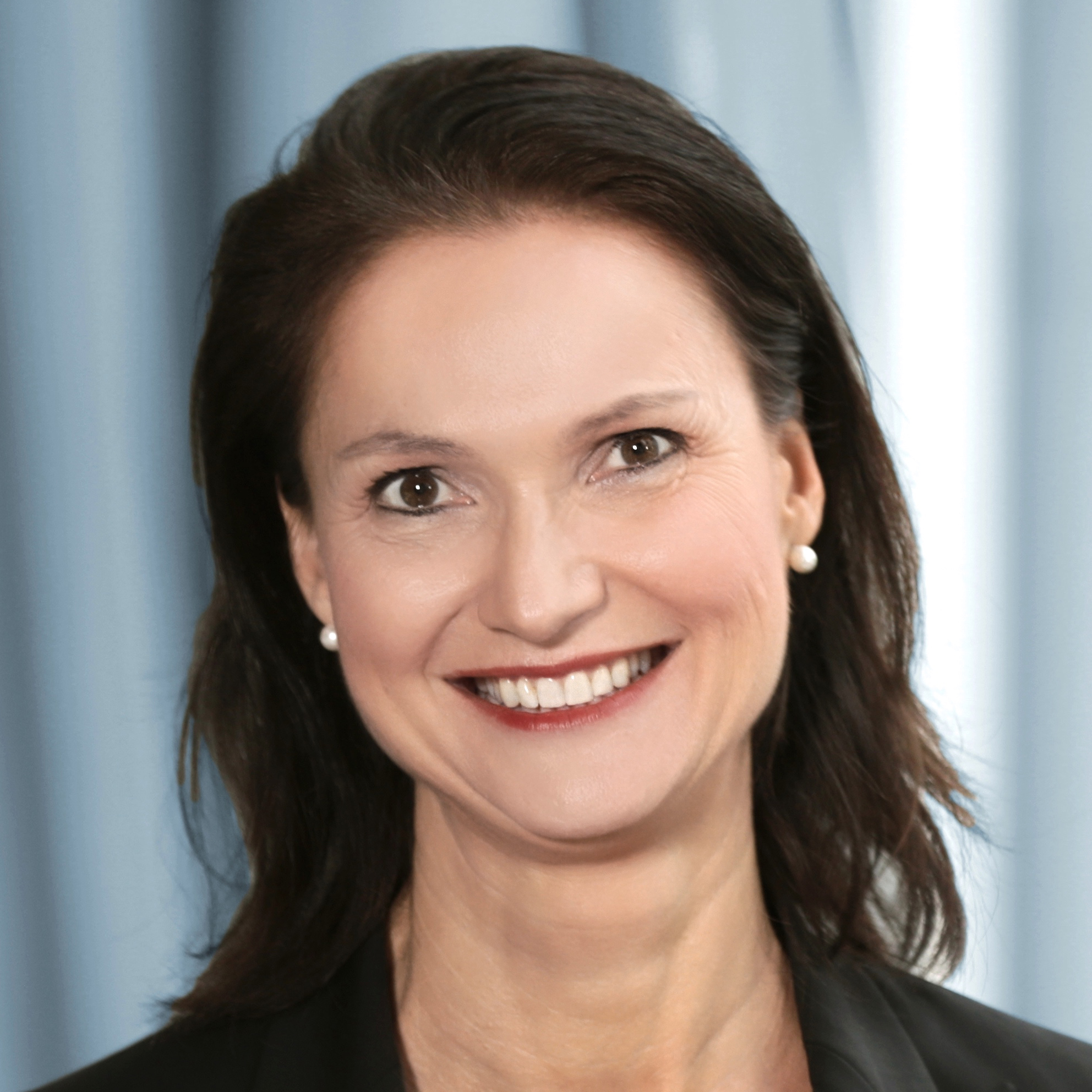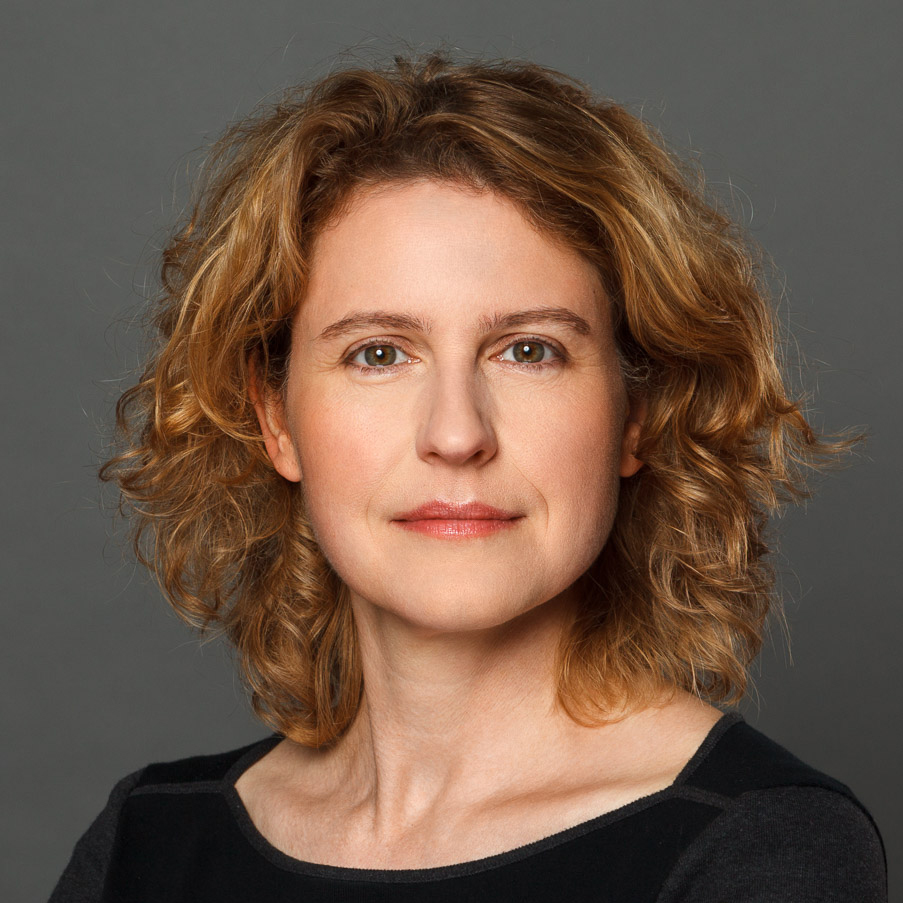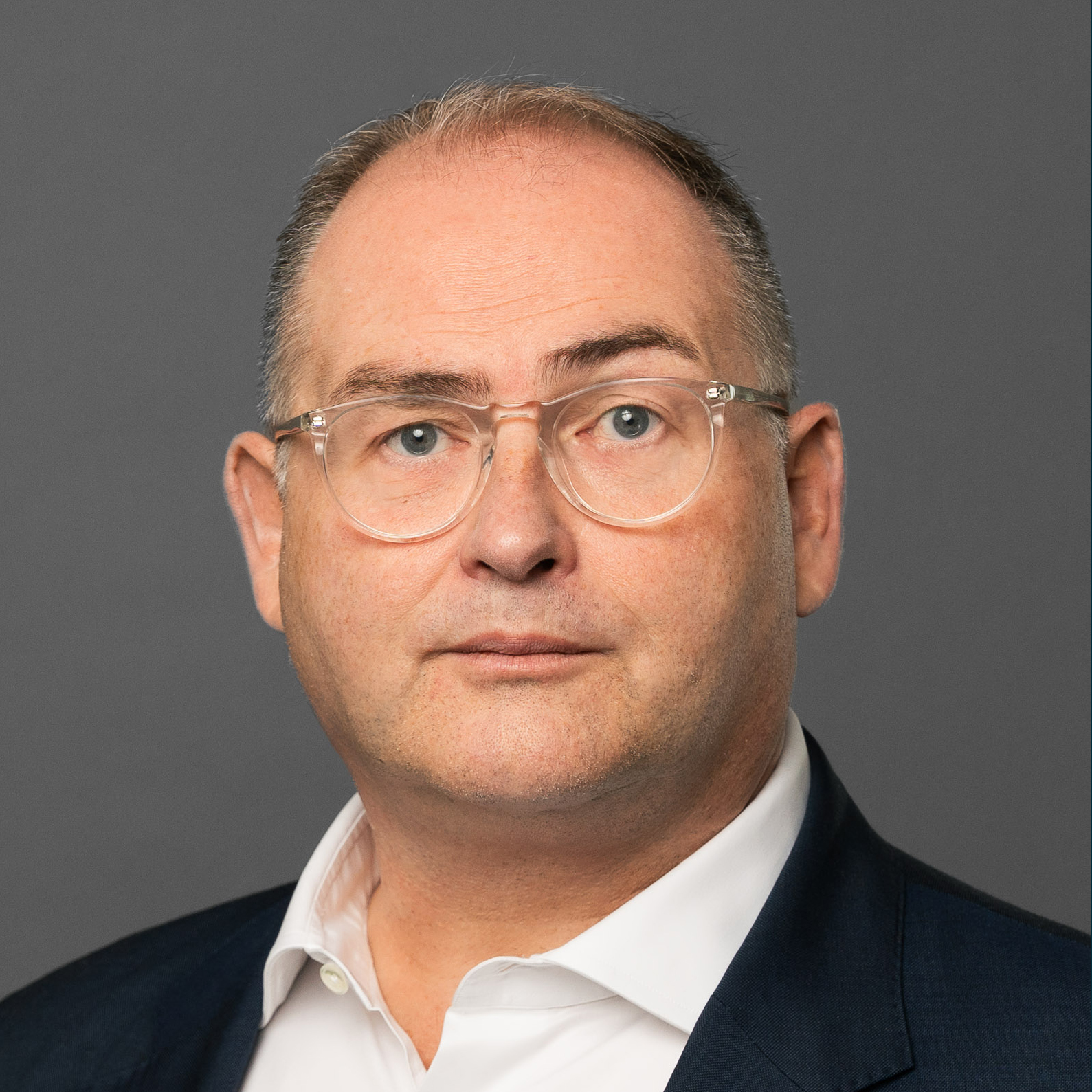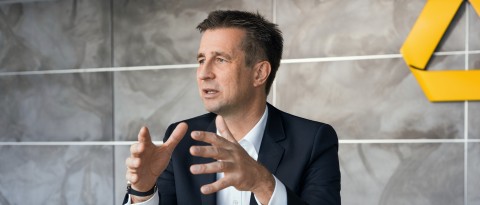"We go where our clients need us!"
Opportunities for growth are crucial for companies' global location policy. This also applies to Commerzbank. Corporate clients benefit from cross-border support.

Commerzbank
10/22/2024

Brigitte Réthier: You’re responsible, among other things, for our international representative offices. We recently announced that we’ll open a new representative office in Lithuania in December 2024. Why Lithuania?
Brigitte: Because we're going where our clients need us to be. Lithuania and the Baltic states are among the most prosperous regions of Europe, and EU & NATO membership facilitates economic cooperation whilst also promoting Lithuania's political stability. In addition, the region has a well-trained workforce and an advanced IT infrastructure. Trade with the Baltic states has also increased significantly, for example with agricultural products and machinery. German companies are actively investing in the manufacturing, logistics, IT and, of course, the renewable energy sectors.
… which is why a representative office in Morocco was also opened in October 2023.
Brigitte: Correct. Morocco has invested heavily in renewable energy, especially solar and wind power. One of the largest solar thermal power plants in the world is located there, in Quarzazate. As an example, the large Germany corporate, Siemens, was involved in the supply of turbines and generators for this facility. In addition, the country is putting significant amounts of money into the development of its infrastructure, such as the construction of roads, bridges and ports. Many German companies are involved in this, and we want to play a role in enabling this activity. Morocco also serves as a springboard for business across Africa, thanks to its free trade agreements with the EU, the US and many African countries.
Lithuania, Morocco … what is the strategy behind it?
Roland Boehm: Our strategy is supporting the goals of our clients’ and that means supporting growth. We’re currently seeing stronger growth in markets outside of Germany. This is why we’re enhancing our business activities in locations where our clients are active. Unfortunately, despite many great companies, Germany is economically on the defensive, and companies need to expand into new international markets. At Commerzbank, we consider the region of Germany, Austria and Switzerland to be our home market, and we accompany our clients from here into the wider world.
At Commerzbank, we have branches and representative offices across the globe. How can representative offices really support our corporate clients if they’re not entitled to settle the traditional banking business such as deposits, loans and payments locally?
Brigitte: As a rule, our representative offices and correspondent banking network support our relationship managers in Germany and internationally by establishing and maintaining a good on-the-ground relationships. We can work with our correspondent and partner banks to process financial transactions and services such as international payments, foreign exchange and trade finance, even in locations where we don’t have our own banking license. For clients this is an important factor, and the value added which comes through local market insight. The teams in the representative offices are our eyes and ears on the ground. They maintain extensive networks across business, the public sector, including central banks and finance ministries, politics and the international chambers of commerce. This knowledge alone makes us a valued partner for corporate clients. One important aspect of representative offices, however, is that they don’t have their own clients and don’t actively conduct operational banking business. This is conducted through our relationship management teams.
Roland: Our clients appreciate that Commerzbank can support them in their international business. This is also reflected in our figures. Compared to last year, we’re seeing significant growth with our international corporate clients.
Great to hear that we’re seeing growth from our international clients, what’s the reason for this?
Roland: This is thanks to our cross-border care approach. Take, for example, a client from the manufacturing sector with production sites in several countries. What’s our added value here? On the one hand, our competence in local markets and on the other – and this is what makes Commerzbank special – we supplement this knowledge with the international sector competence of our colleagues in Frankfurt. This enables us to make market potential visible to our clients and to leverage it. This is our international USP and I’m particularly proud of this global, multilingual, cross-cultural knowledge exchange that takes place in the team.
When we talk about growth, which market has the greatest growth potential for the Bank?
Roland: I’d say the USA. Looking at the macroeconomic data, there’s considerable potential for trends such as renewable energy. There’s also a record level of direct investment, and we want to play an active role when it comes to financing this investment.
What about growth in Asia and China?
Roland: China remains an important market for us. When it comes to banking in China, we’ve traditionally been strong in the areas of trade finance, cash management, foreign exchange and risk management. We’re not withdrawing from here, despite the recent geo-political tensions and stricter regulation for international institutions, instead we’ve been pursuing a focused strategy, and we’ll remain to support our clients through our offices in Shanghai and Beijing.
In which countries do our clients currently see opportunities? Where are they more cautious?
Brigitte: The global economic situation has become very complex for companies, and the management of risks is a key topic for them. We see this in the increasing number of hedging transactions for foreign exchange, interest rates and commodities business. When we look at where our corporate clients currently see their opportunities, then it’s clearly the USA and Southeast Asia.
Roland: The advantages in these countries include growing market potential, risk mitigation through a broader geographical footprint and, especially in Southeast Asia, lower wage costs. However, China should also be mentioned as a country of opportunity for certain industries. Although the economic recovery in China is slower than expected, it’s currently the leading market for the chemical industry with very good growth prospects. In the automotive industry for example, Bosch is the largest supplier to invest in a new center in Suzhou, where it will equip the main Chinese car manufacturers and their trendy e-cars.
Brigitte: At the same time, German companies, particularly the supplier industry, were forced to withdraw their production from countries such as Belarus and Ukraine. North Africa and Morocco in particular offer suitable alternatives due to their good logistical connections, well-skilled workers, some of whom trained in Europe, and a competitive cost structure. Moroccan banks also, through their pan-African presence, provide a good bridge for further expansion to West Africa. German investment in this region is still low compared to Asia, but we’re seeing growing attention, whether in the field of alternative energy, the automotive and aircraft supply industry, the textile industry or even the service sector. In addition, billions of infrastructure investments in the areas of transport, water and energy are being planned. The World Cup in 2030 alone ensures numerous and comprehensive project investments in Morocco.
Roland: Despite increasing complexity, we also see that most clients are acting to address the challenges in global markets. Companies are interested in solutions that enable their international success, and this is why we offer services that help our international corporate clients to protect themselves against risks across borders and to promote growth.
Our clients are facing many globally challenges, what changes do you expect to see?
Roland: Firstly, we must constantly review our global positioning to be where our clients need us. This fits well with our 2027 strategy, which – and this includes our international location policy – is geared toward growth. We’re also seeing increased demand from our corporate clients for our strategic advisory services. International banks such as Commerzbank are at the heart of this complex global economy. We need to analyse the impact of political decisions and economic developments, find solutions, and then discuss them with our international corporate clients.
Brigitte: We’re seeing many global changes and topics are evolving in an ever-shorter timeframe. To provide our clients with the best possible advice, we must be able to anticipate and manage developments at an early stage – internationally, we’re well positioned for this. Our network of currently 14 branches and 25 representative offices covers six continents in more than 40 countries. Our locations and knowledge are complemented by our global network of 1,300 correspondent banks in over 150 countries. We’ve closed our gap in Central & Eastern Europe through a cooperation agreement with the Austrian Erste Group. All of this is a real asset.
Finally, what is Commerzbank's international strategy for the end of 2027?
Brigitte: Our international focus is on strengthening the import and export business of our corporate clients and adapting our representative offices and correspondent banking network along new trade corridors. The goal is always to drive the growth of our clients. This means we’ll also grow.
Roland: We’re aiming for targeted growth, especially in the USA and Europe. Green infrastructure financing, for example through our New York and Singapore offices, is an essential key to developing new business. If we look at growth in Europe, we should mention Switzerland in particular. Here we’ve planned a significant increase in staff. One reason for this is the gap in the Swiss market left by Credit Suisse, which had a strong corporate client base, and has now been integrated into UBS. For Commerzbank, we see potential in capital market products such as Swiss franc bonds, trade financing and hedging transactions. Our deal pipeline is full. Overall, we’ll continue to improve our international processes and expand our digital product range for our clients.
Brigitte: It’s important to express our thanks to our international colleagues. Your professionalism and continued commitment to our corporate clients around the world, makes the difference. You keep raising the bar for client relationships. That's exactly what our clients value and deserve.
Roland: I can fully support that.

Brigitte Réthier
Brigitte began her career in 1993 at the Royal Bank of Canada. In 1995 she moved to Dresdner Bank. Since 2010, she has held various management positions at Commerzbank in sales, credit portfolio management and strategic development in the Corporate Clients segment. In 2022 she was appointed the Divisional Board Member for Institutional Clients & Transaction Banking Sales, including international representative offices.

Roland Boehm
Roland was born in Essen and grew up in Australia and Canada. In 1990 he began his career as a trainee at Dresdner Bank. Prior to his current position, he was Head of Debt Capital Markets Loans. In 2016 he became the Divisional Board Member for International Corporates with responsibility for 14 countries and the advising of international, German and DAX companies.




